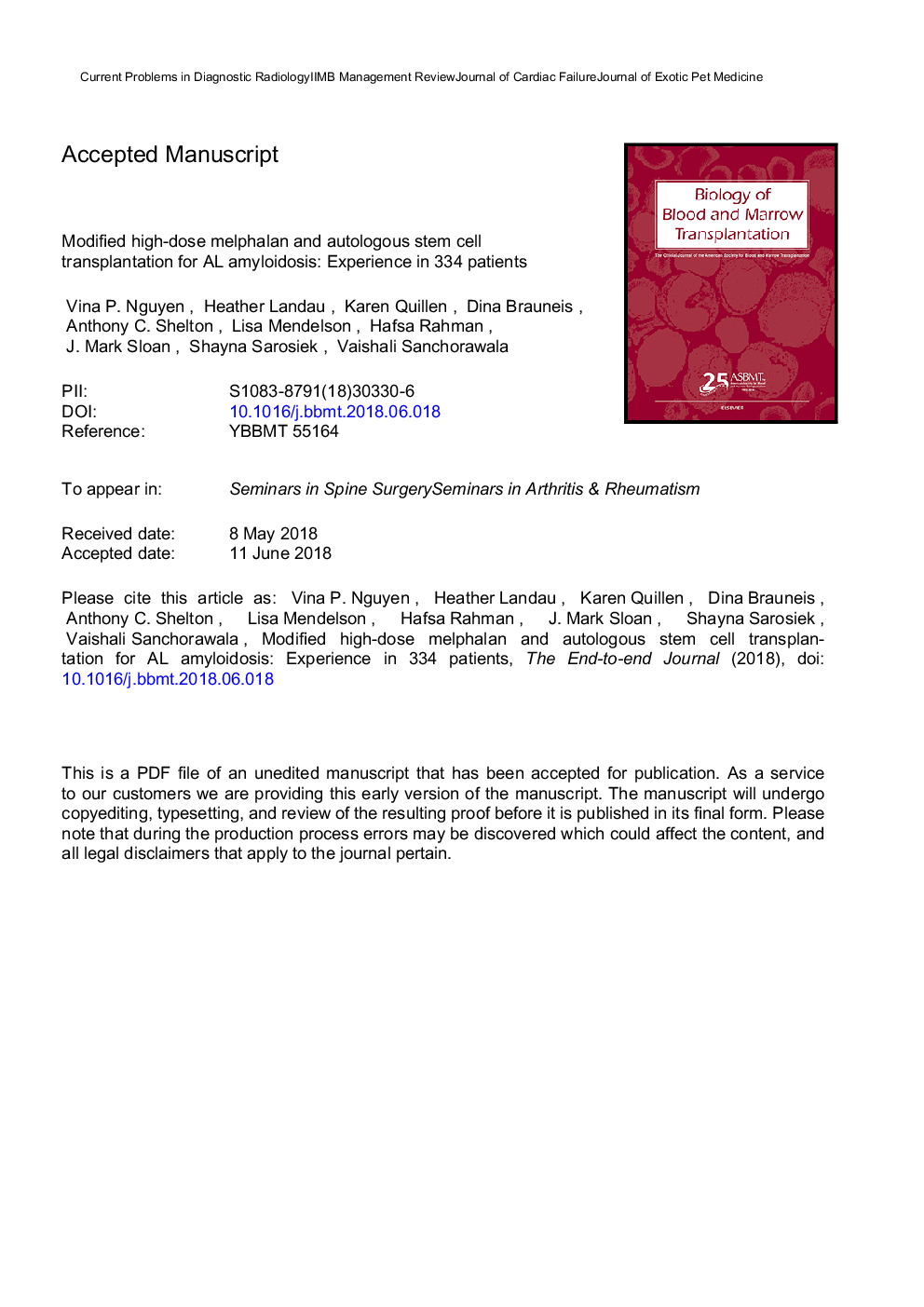| Article ID | Journal | Published Year | Pages | File Type |
|---|---|---|---|---|
| 10157452 | Biology of Blood and Marrow Transplantation | 2018 | 23 Pages |
Abstract
High-dose melphalan and autologous stem cell transplantation (HDM/SCT) have been used in patients with immunoglobulin light chain (AL) amyloidosis for over 2 decades now with durable responses, prolonged survival, and decreasing treatment-related mortality. Historically, patients with poorer baseline functional status, advanced age, renal compromise, and cardiac involvement have been treated with a risk-adapted modified conditioning dose of melphalan (mHDM) of 100 to 140 mg/m2 before SCT. In part because of these baseline characteristics, patients receiving mHDM/SCT have had poorer outcomes compared with patients receiving full-dose melphalan at 200 mg/m2. With the advent of novel therapeutic agents such as proteasome inhibitors, immunomodulatory agents, and monoclonal antibodies for the treatment of AL amyloidosis, it is imperative to understand the long-term effects of mHDM/SCT. Here we report the long-term outcomes of 334 patients with AL amyloidosis treated with mHDM/SCT. Median overall survival was 6.1 years and median event-free survival 4.3 years, with median overall survival reaching 13.4 years for patients who had achieved a hematologic complete response (CR). Overall hematologic response rate was 69%, and treatment-related mortality was 3% after 2010. Thus, mHDM/SCT leads to prolonged survival and favorable outcomes, especially if a hematologic CR is achieved.
Related Topics
Life Sciences
Biochemistry, Genetics and Molecular Biology
Cancer Research
Authors
Vina P. Nguyen, Heather Landau, Karen Quillen, Dina Brauneis, Anthony C. Shelton, Lisa Mendelson, Hafsa Rahman, J. Mark Sloan, Shayna Sarosiek, Vaishali Sanchorawala,
